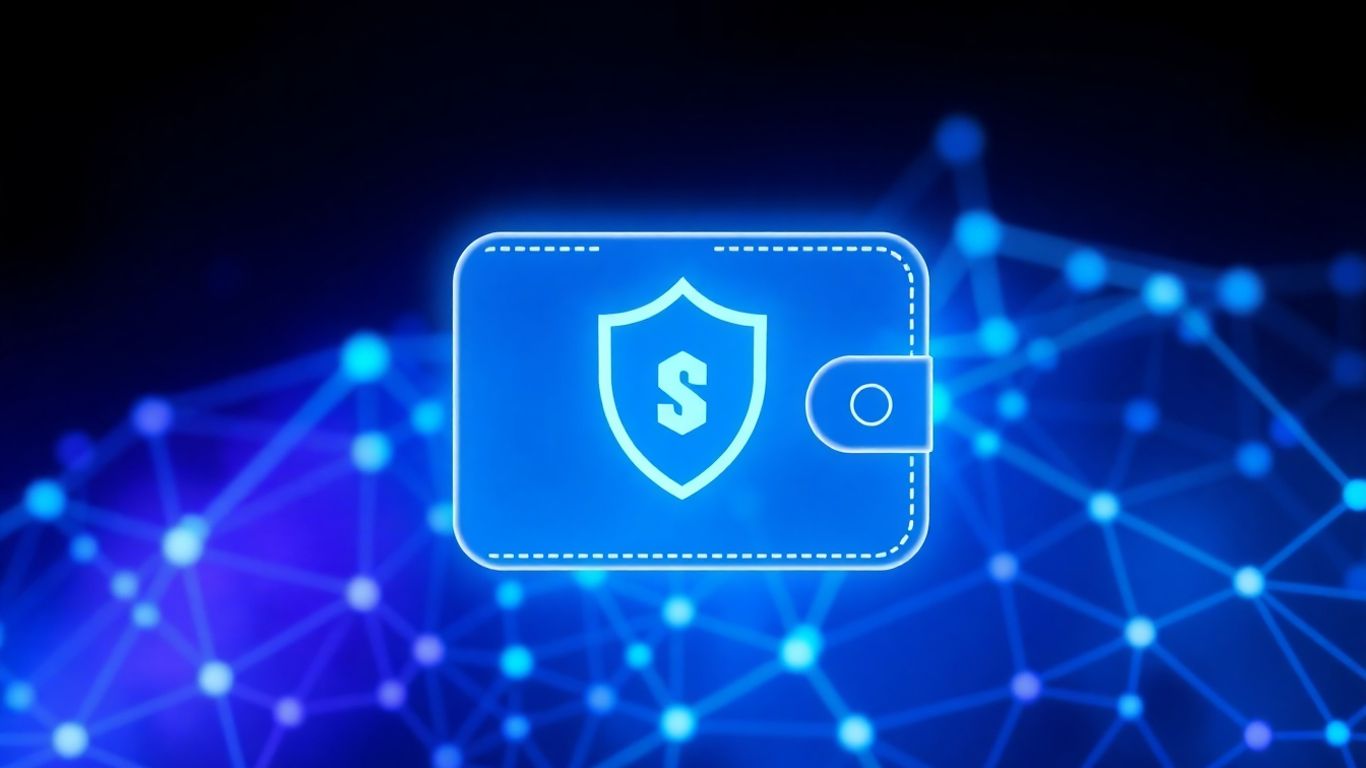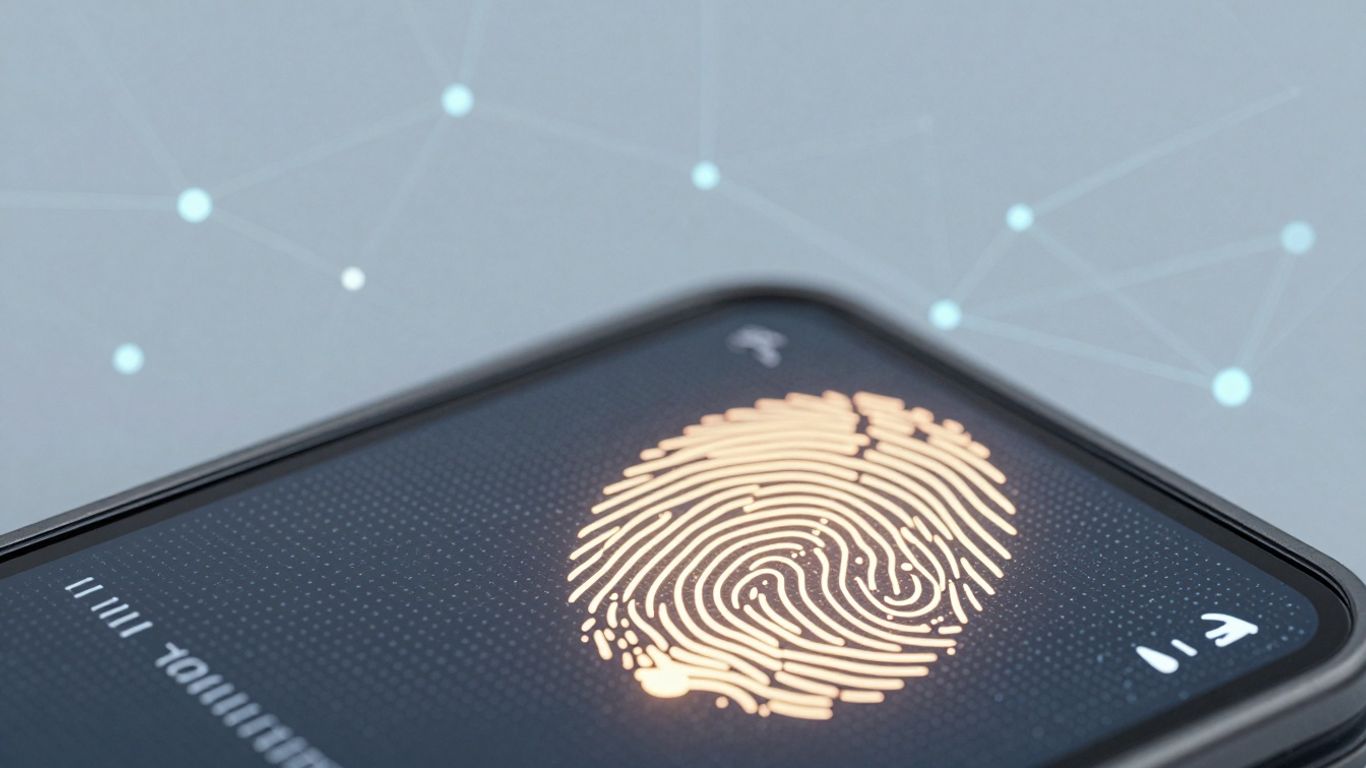[ newsletter ]
Stay ahead of Web3 threats—subscribe to our newsletter for the latest in blockchain security insights and updates.
Thank you! Your submission has been received!
Oops! Something went wrong. Please try again.
Discover the best Web3 wallets on Reddit for 2025. Our guide covers top picks like MetaMask, Coinbase Wallet, and Ledger Nano S, focusing on security and user experience.





Looking for the best crypto wallet reddit 2025? It's a big question, and honestly, finding the right one can feel like a puzzle. So many options out there, right? We've sifted through what people are actually talking about on Reddit to help you figure it out. Whether you're just starting or you've been around the block a few times, getting your crypto storage sorted is super important. Let's break down what matters and see what the community is saying.
When you're talking about Web3 wallets, especially on Reddit, MetaMask almost always comes up. It's pretty much the standard for anyone diving into the Ethereum ecosystem, and honestly, for good reason. It started out as a browser extension, which made it super easy to connect to decentralized applications (dApps) and interact with smart contracts. Now, it's also available as a mobile app, so you can manage your crypto on the go.
MetaMask is your gateway to a lot of what's happening in crypto right now. Think decentralized finance (DeFi), non-fungible tokens (NFTs), and all sorts of new Web3 projects. It supports Ethereum and pretty much any token built on it (like those ERC-20 tokens). Plus, it's compatible with hardware wallets, which is a big plus for security if you're holding a significant amount of crypto.
Here's a quick look at what makes it stand out:
While MetaMask is fantastic for Ethereum-based assets, it's important to remember it doesn't natively support other blockchains like Bitcoin. You'll need a different wallet or a more multi-chain solution if Bitcoin is your primary focus.
It's free to use, which is always a good start. You can swap tokens, manage your assets, and explore the decentralized web all from one place. For many, it's the first wallet they ever use, and it's a solid choice to get started with.
Coinbase Wallet is a solid choice, especially if you're just getting into crypto or want something that feels familiar. It's backed by Coinbase, a pretty big name, which gives a lot of people peace of mind. It's completely free to use and supports a huge number of tokens, over 5,500 at last count. This makes it easy to hold a wide variety of digital assets without needing multiple wallets. They've also put in some good security measures, like letting you use your fingerprint or face to get into the app, and they show you previews of your transactions before you confirm them. Plus, they have built-in educational stuff to help you learn as you go.
One of the really neat things about Coinbase Wallet is its ability to interact with different blockchains. You can swap tokens between networks directly from the wallet, which cuts down on hassle and potential fees. It's designed to be easy to use, with clear menus and simple steps for sending or receiving funds. This makes it accessible for beginners, but it also has enough features for more experienced users without being overly complicated.
The ability to manage assets from multiple blockchains in one app and swap tokens between different networks directly simplifies managing a diverse crypto portfolio. This kind of flexibility makes managing your digital assets much more convenient.
Here's a quick look at what makes it stand out:
The Ledger Nano S used to be a really popular choice for keeping your crypto safe, especially if you were into things like Litecoin and Ethereum. It's a hardware wallet, which means it's like a little USB stick that keeps your private keys offline, away from internet hackers. This is a big deal for security. You'd plug it in when you needed to make a transaction, enter a PIN, and confirm on the device itself. It was pretty good for holding a decent amount of different coins too, not just one or two.
However, it's important to know that Ledger has announced they are ending support for the Nano S. They're calling it obsolete because it just can't keep up with all the new features and security needs of the crypto world anymore. So, while it was a solid option for a long time, it's probably time to think about upgrading if you're still using one. You can find more info on Ledger ending support.
This move signals a shift towards newer, more capable hardware wallets in the market.
If you're looking for a hardware wallet, you'll want to check out newer models that can handle more advanced features and offer better long-term security. The core idea of a hardware wallet – keeping your crypto offline – is still a top-tier security strategy, but the technology moves fast.
When you're talking about serious security for your crypto, Trezor is a name that comes up a lot, especially on Reddit. These guys make hardware wallets, which are basically like a super-secure digital vault for your private keys. Think of it like a physical key to your crypto bank vault – you need the actual device to approve any transactions. This offline approach is a big deal because it means hackers can't just reach through the internet and grab your stuff. It's a solid choice if you're holding a decent amount of crypto and want that extra peace of mind.
Trezor offers a couple of main models, the Model T and the Model One. The Model T is their fancier option with a color touchscreen, while the Model One is a bit more basic but still packs a punch security-wise. Both are designed to keep your digital assets safe from online threats.
Here’s a quick look at what makes Trezor stand out:
Keeping your crypto safe is the main goal here. Trezor wallets are built with that in mind, focusing on keeping your private keys offline and requiring physical interaction for any movement of funds. It’s a bit more involved than just using a mobile app, but for many, the security benefits are well worth the extra step.
While they're not the cheapest option out there, and you do have to manage a physical device, Trezor wallets are frequently recommended by experienced crypto users on Reddit for their reliability and strong security features. If you're serious about protecting your investments, Trezor is definitely worth a look.
Exodus is a solid choice, especially if you're looking for a wallet that works well on your phone. It’s got a pretty slick design and packs a good amount of features right into the app. You can buy, sell, and even stake your crypto directly from your mobile device, which is super convenient. Plus, it plays nice with Trezor hardware wallets, giving you an extra layer of security if you need it.
What really sets Exodus apart for many users is its ability to manage assets from a bunch of different blockchains all in one place. You can even swap tokens between these networks without having to go through a separate exchange. This can save you a good chunk of time and, let's be honest, fees.
While Exodus doesn't have its own in-house exchange, which some other wallets do, its focus on user experience and broad compatibility makes it a strong contender for anyone managing a varied crypto collection.

Trust Wallet is a popular choice, especially if you're looking for a mobile-first experience. It's pretty straightforward to set up and use, which is a big plus for people who are just getting into crypto. You can hold a wide variety of coins and tokens, and it also lets you interact with decentralized applications (dApps) and NFTs directly from your phone. They've put a lot of effort into making it easy to manage your digital assets without needing to be a tech wizard.
One of the things that stands out is its broad support for different blockchains and tokens. This means you're not usually limited to just one or two networks, which is great for exploring different parts of the crypto world. It's a non-custodial wallet, meaning you control your private keys, which is a key aspect of security in the crypto space.
Trust Wallet has a strong reputation for security, and it's backed by Binance, one of the largest crypto exchanges. This association can give users a sense of confidence, though it's always wise to do your own research and understand the security measures in place for any wallet you choose. They've earned an AAA security rating from Cer.live, which is a good indicator of their security practices.
Electrum has been around for a while, and it's a name you'll hear a lot if you're specifically into Bitcoin. It's not really for folks who want to dabble in a bunch of different altcoins; this wallet is pretty much laser-focused on Bitcoin. That's not necessarily a bad thing, though. For Bitcoin users, especially those who like to tinker and have a lot of control, Electrum is a solid choice.
What makes it stand out is its customizability. You can tweak a lot of settings, which is great for more experienced users who want to fine-tune their transactions. It's also known for being pretty lightweight and fast, which is a nice bonus. Plus, it's open-source, meaning people can look at the code to check for security issues, which builds a lot of trust.
Electrum is a good pick if your crypto world revolves around Bitcoin and you appreciate having granular control over your wallet's settings and security.
However, if you're new to crypto or you're holding a variety of coins beyond Bitcoin, Electrum might feel a bit clunky. It doesn't have the slick, user-friendly interface that some of the newer wallets boast, and you won't find features like staking or direct access to DeFi platforms here. It's a workhorse for Bitcoin, not a Swiss Army knife for all of crypto.
Here's a quick look at what it offers:
MyEtherWallet, often shortened to MEW, is a popular choice, especially if you're looking for a wallet that gives you a lot of control. It's a web-based wallet, meaning you access it through your browser, which is pretty convenient. What a lot of people on Reddit seem to like about MEW is that it really puts you in charge of your private keys. This is a big deal in the crypto world because your private keys are basically the keys to your digital vault.
MEW has been around for a while and has built a solid reputation. It's known for being quite flexible and allows you to interact with various blockchain applications. It's not a hot wallet in the sense that it holds your keys for you on their servers; instead, you generate and manage them yourself, which is a key difference from some other wallets.
When choosing a wallet like MyEtherWallet, understanding how to properly secure your private keys or keystore file is super important. Losing these means losing access to your crypto, no ifs, ands, or buts.
Here’s a quick look at some of the things people mention about MEW:

Zengo really stands out because it's designed to be super easy to get started with. They focus a lot on making crypto accessible, even if you're new to it all. It's available on both your phone and computer, which is pretty handy. They also have some interesting security features, like using MPC (multi-party computation) which means your private keys aren't stored in one single place. This is a bit different from how some other wallets work.
When it comes to features, Zengo lets you buy, sell, and even stake your crypto directly within the app. This means you don't necessarily need to move your funds to an exchange for those actions. They support a good number of different cryptocurrencies too, over 380 according to their site.
Zengo's approach to security, particularly its use of MPC technology, aims to provide a robust defense against common wallet vulnerabilities. This method distributes cryptographic responsibilities, making it harder for any single point of failure to compromise user assets.
While Zengo is a solid choice, it's worth noting that it does come with a subscription fee. It's not free like some other options out there. You can check out their pricing plans on their official website. This premium model is how they fund their ongoing development and customer support, which many users find to be quite good.
So, we've talked about a bunch of different wallets, but what about the tokens that power them? It's a bit of a newer concept, but some wallets have their own native tokens that give you extra perks. Think of it like a loyalty program, but for your crypto. The Best Wallet Token, or BEST, is one of these. It's the native coin for the Best Wallet app, which has been growing pretty fast.
This token is designed to give holders benefits right inside the app. What kind of benefits, you ask? Well, you can get lower fees on trades, better staking rewards – we're talking up to 83% APY, which is pretty wild – and even get early access to new projects before they're widely available. It's basically trying to make the wallet experience better for its users.
Here's a quick look at what the BEST token offers:
It's interesting because the wallet itself uses some pretty advanced security, like Fireblocks MPC, so you don't even have to worry about managing a seed phrase yourself. You just use a PIN or your fingerprint. The BEST token just adds another layer of utility on top of that.
The idea behind these native tokens is to create a sticky ecosystem. If you're getting better rates and exclusive access just by holding the token, you're more likely to stick with that particular wallet. It's a smart way to build loyalty and reward active users, but it also means the token's value is pretty tied to how well the wallet itself performs and how many people are actually using it.
Right now, the BEST token is still in its early stages, with a presale happening. It's built on both the BEP-20 and ERC-20 standards, meaning it can work across different blockchains. If you're already a big fan of the Best Wallet app, then looking into its native token might be worth considering, especially if you plan on using its DeFi features a lot. Just remember, like any crypto, it comes with its own set of risks, and its success is really linked to the adoption and development of the Best Wallet platform itself.
So, after digging through what everyone's talking about on Reddit, picking the right crypto wallet in 2025 really comes down to what you need. Whether you're all about top-notch security with a hardware wallet, or you prefer the ease of a software option for everyday use, there are solid choices out there. Remember to think about which coins you'll be holding and how you plan to use them. Don't just grab the first one you see; take a moment to compare features and make sure it feels right for you. Getting this step right is a big deal for keeping your digital money safe and sound.
When picking a crypto wallet, security is super important. Think about things like fingerprint or face ID logins, keeping your secret keys safe, and whether it can store your crypto offline. These features help protect your digital money from being stolen.
A hot wallet is connected to the internet, making it easy to use for quick trades. But, because it's online, it's more open to hackers. A cold wallet is kept offline, which is much safer for storing your crypto long-term, kind of like putting your money in a secure vault.
A non-custodial wallet means you're in charge of your secret keys, which are like the passwords to your crypto. This gives you full control, but it also means you're responsible for keeping those keys safe. If you lose them, nobody can help you get your crypto back.
If a wallet supports multiple blockchains, it means you can store and manage different types of cryptocurrencies, like Bitcoin and Ethereum, all in one place. Some even let you swap coins between these different blockchains without needing another app.
It's really important! A good wallet should be simple to understand, even if you're new to crypto. This means clear menus and easy ways to send or receive money. It makes managing your digital money much less of a headache.
Yes, many wallets work on phones, computers, and even as browser extensions. This lets you access your crypto from wherever you are. Some even sync up so your information is always the same across all your devices.


